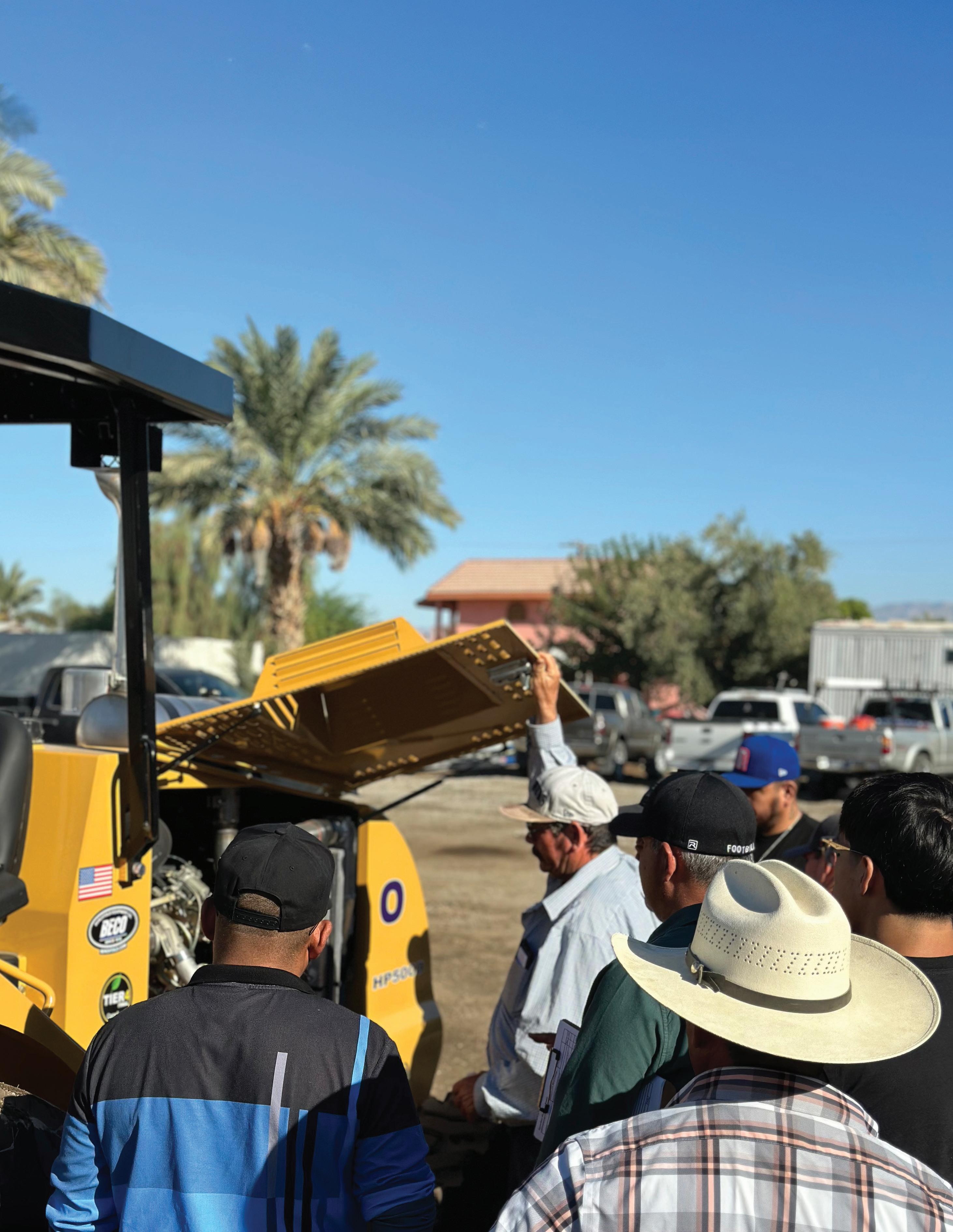

SPECIALTY CROP WORKFORCE DEVELOPMENT PROGRAM
TRAINING FOR THE SKILLS NEEDED TODAY AND IN THE FUTURE
California agriculture stands at a pivotal moment, undergoing profound transformation by technology, innovation and a renewed focus on climate-smart practices. Jobs in agriculture are not just the ones you might think of when you drive past a dairy, an orchard or a field of row crops. Today’s ag jobs are also about innovation, science, technology and entrepreneurship.

As this evolution continues, the need for a technologically skilled and adaptable workforce is essential to growing high-quality careers and ensuring that California agriculture remains a strong driver of the state’s economy and a global leader in food and agriculture. The Specialty Crop Agricultural Workforce Development Program is meeting this moment with collaboration, action and purpose — and there are results to celebrate.
Through a powerful network of partners, the program is creating training pathways that reflect the skills the specialty crop sector needs today and in the future, and setting the foundation for a resilient, inclusive agricultural workforce. This progress is about attracting young people to the multitude of career opportunities in agriculture – and it’s also about the very important need to identify upskilling opportunities for our incumbent ag workforce.
Specifically, the program is engaging California’s specialty crop employers through forums, partnerships and programs that create new pathways for high-quality internships and jobs. These engagements are informing our work to develop training and curriculum programs that meet the needs of not only industry, but also of all Californians. Importantly, this program is advancing career pathways for farmworkers, helping ensure opportunities are within reach for more people and families, particularly those historically excluded from career advancement. This work also supports farmers of all sizes, creating more equitable opportunity for those who do the important work of growing food.
This work also aligns with CA Jobs First, California’s comprehensive economic development strategy. Eight of the 13 regional CA Jobs First plans include a strong emphasis on agriculture and ag tech, affirming the critical role of agriculture in driving equitable, innovation-based growth across the state.
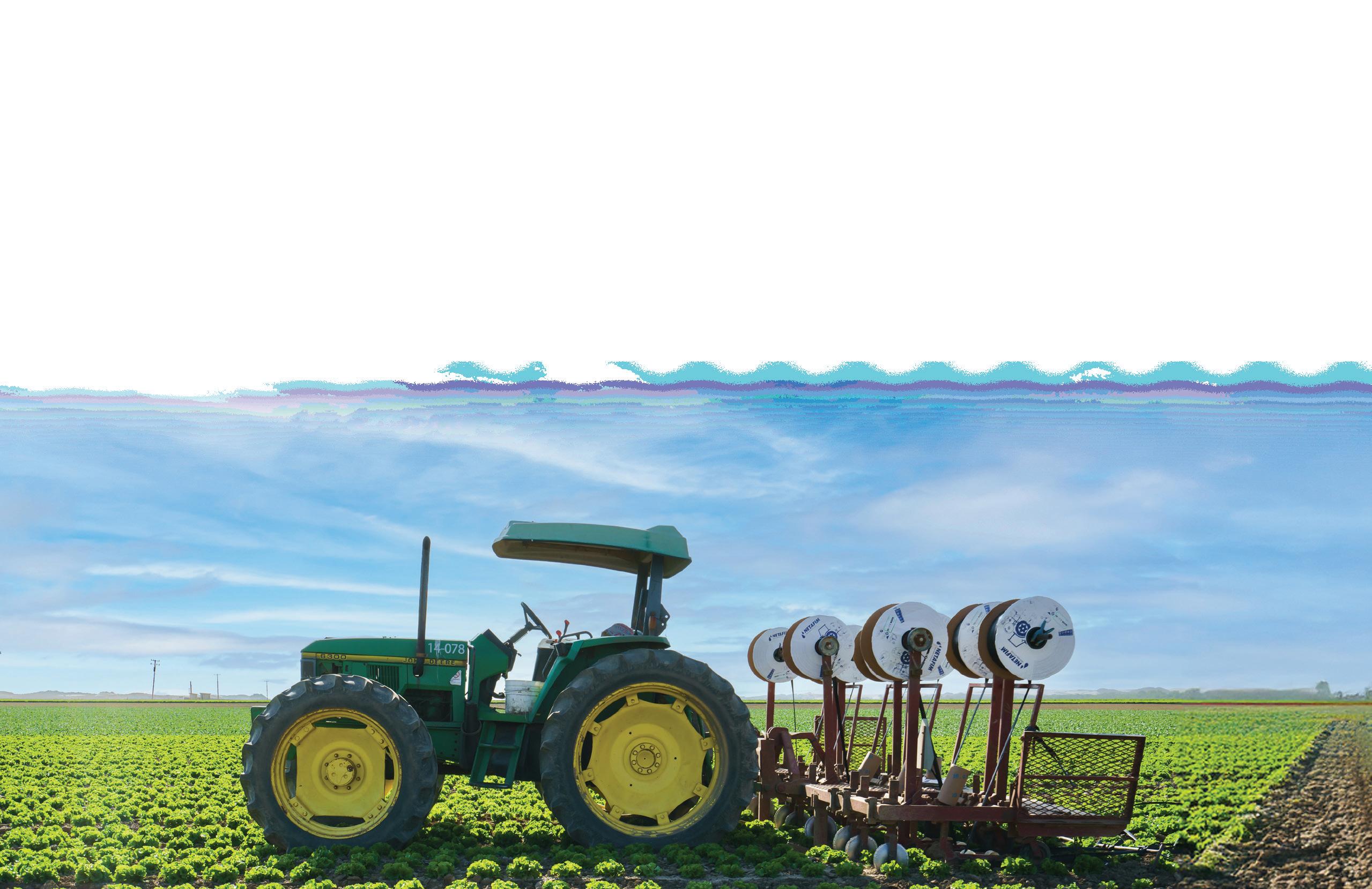
Agriculture is more than a legacy in California — it’s a future full of promise. Thank you to all the partners, participants, and advocates driving this effort forward. Your work is ensuring that California agriculture remains a place of innovation, equity, and economic strength for generations to come.
Sincerely,

Karen Ross
Secretary, California Department of Food and Agriculture
WHAT’S INSIDE
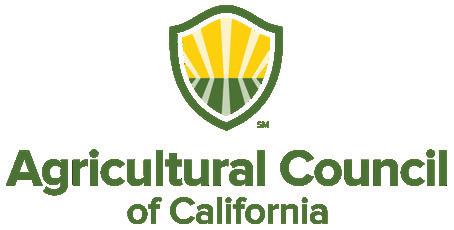



REPORT HIGHLIGHTS DISPARITIES BETWEEN EMPLOYER NEEDS & TRAINING OPPORTUNITIES
In 2024, the Specialty Crop Workforce Development Program commissioned a study with the Center of Excellence to understand workforce trends, occupational demand, and education and training alignment within California’s specialty crop sector. The final report, entitled Growing the Future: Addressing Workforce Needs in California’s Specialty Crop Industries, offered the following key findings:

• There is a misalignment between California’s high school, adult education, and community college education and training offerings and the needs of the specialty crop industry, limiting the supply of qualified workers.
• The South Central/Inland and South San Joaquin Valley experience significant disparities in training availability and access. In particular, the Central Valley exhibits high production volumes but lags in related training infrastructure. Northern and coastal regions maintain relatively stronger training-to-employment ratios, but still face mismatches in occupational focus.
• Employers report persistent barriers to worker advancement, including limited transportation options, language barriers and a lack of flexible training schedules.
• Demand for technical roles — such as equipment mechanics, quality assurance, food safety, and advanced machine operation — is growing, yet education and training offerings may be too few or too slow to change, and may not reflect the needs that are important to employers.
• The workforce development strategy must pivot quickly: upskill existing employees through scalable, flexible training models; refocus resources from declining sectors; and foster public-private coordination to ensure that training is both geographically and occupationally proportional to demand.
• Addressing delivery challenges — such as wage support, flexible scheduling, and access —will be essential to meeting the evolving needs of California’s specialty crop industry workforce.
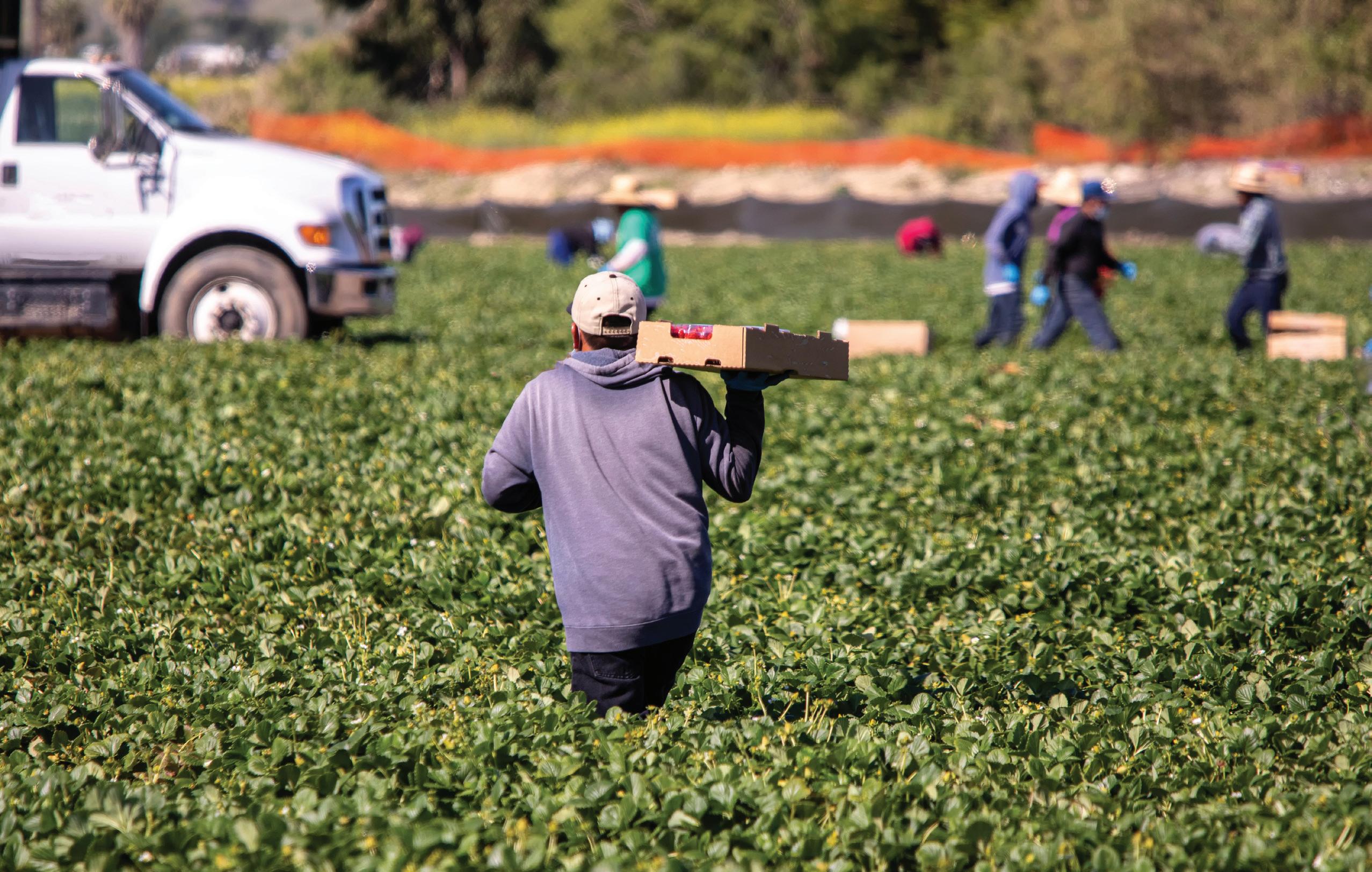
California’s agriculture labor market requires a more agile, inclusive, and regionally tailored approach to workforce development. By modernizing and rebalancing its training systems, the state can ensure a resilient and competitive workforce for the future.
Center of Excellence 2025 Report
THE PROGRAM AT A GLANCE
The Specialty Crop Workforce Development Program focuses on four main program areas – each of which are interconnected and work together to train for the skills needed now and in the future. As California agriculture moves to more climate-smart and technology-driven practices, the need to equip the current and future ag workforce with new and in-demand skills is greater than ever, and the program is achieving much success.
As part of its Training and Curriculum Development efforts, the program:
• Informs the creation of curriculum, training and certifications.
• Reviews current curriculum and training programs for gaps in education.
• Connects employers with educators.
• Facilitates trainings for community college faculty and other educators.
• Builds resource materials to support education.
245
Educators engaged in curriculum development
Through its Specialty Crop Employer Engagement efforts, the program:
• Tracks employer workforce needs.
• Connects specialty crop employers with community colleges and other educators.
• Hosts and facilitates stakeholder forums to promote resources and learn about workforce needs.
• Builds internship and apprenticeship programs.
• Relays and articulates agricultural labor needs to policymakers and others.
1,949
Specialty crop employers engaged
58
Partnerships created with community colleges or training organizations
252
Internships created or supported
For Farmworker and Future Workforce Outreach and Education, the program:
• Provides training and upskilling opportunities.
• Surveys farmworkers to understand their interests, needs and concerns.
• Connects workers with community colleges and other educational programs.
• Facilitates workplace trainings on skills including technology, language, digital and soft skills, and more.
29k+
Farmworkers surveyed
• Connects workers to “wrap-around” resources (i.e., childcare, transportation, etc.) to lower barriers to education access.
• Provides counseling on agricultural career pathways.
As part of its efforts to Elevate Small Farms and Farmers, the program:
• Supports small and rural farmers with tools, education, and resources.
• Connects small and rural farmers with added trainings and resources to grow their businesses.
• Fosters connections with farm-to-school, healthcare food service and other programs that seek local farm products.
262
Small farms engaged
457
Farmworkers participated in education or training programs
32
Small farms directly supported
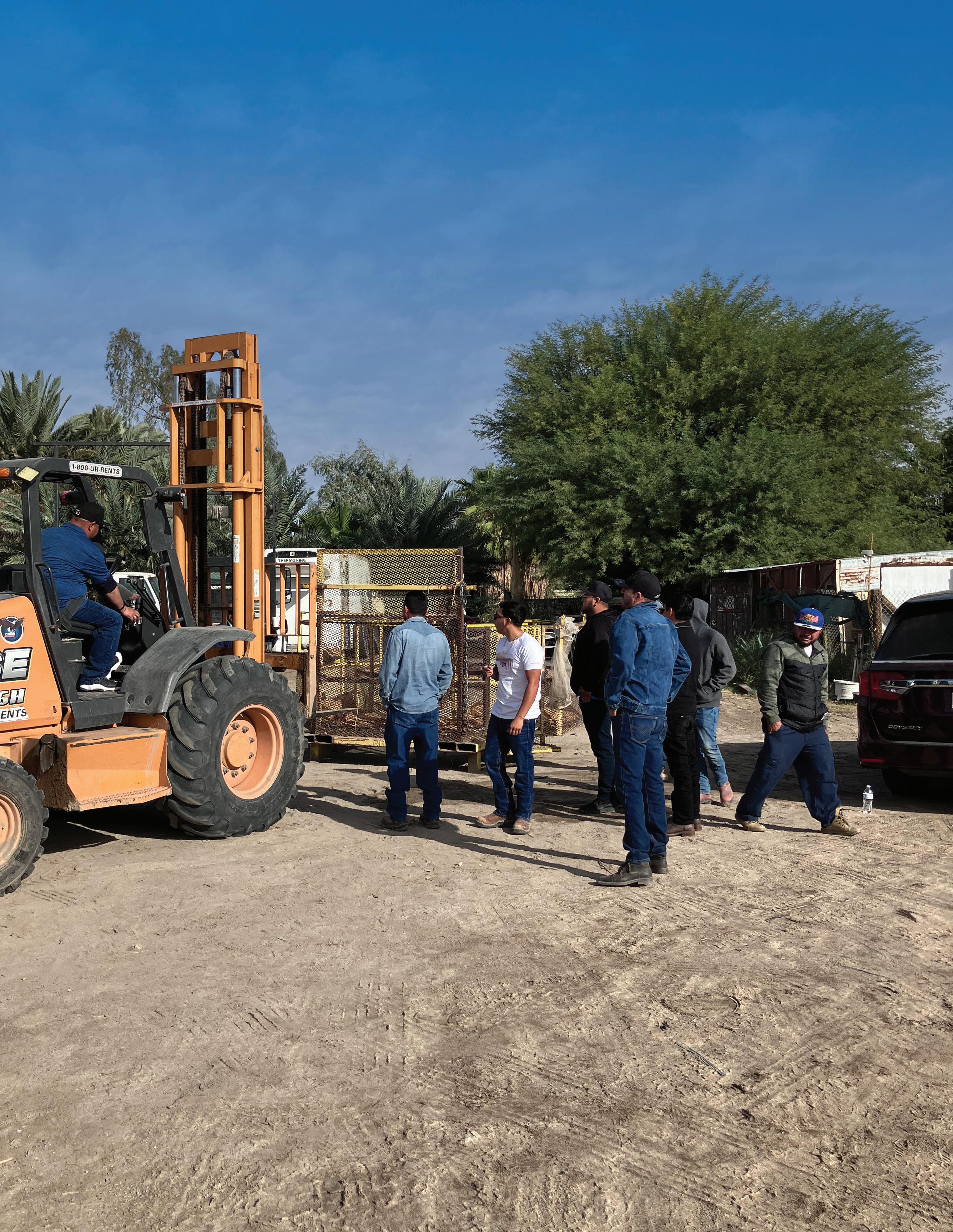
Education That Works: TRAININGS AND CURRICULUM PAVE WAY FOR REWARDING CAREERS IN AGRICULTURE
Through its training and curriculum development efforts, the Specialty Crop Workforce Development Program informs and facilitates the development of educational opportunities that equip the specialty crop workforce with essential skills for rewarding careers in farming and climate-smart agriculture.
Wins to Celebrate:
• In partnership with Western Growers, 10 free educational modules have been adopted by 23 community colleges covering key agriculture technology topics.
• In partnership with the Stanislaus County Farm Bureau and Stanislaus County Workforce Development, two supervisory development trainings were created.
• Through work with the California Farmworker Foundation, trainings were offered in CPR certification, offering a valuable skill for those working in fields.
• A new course (AG 166: Crop Protection) was developed at Allan Hancock College to integrate plant pathology, entomology and weed science to prepare students for the Pest Control Advisor exam.
FARMWORKERS GAINING VALUABLE SKILLS
The California Farmworker Foundation is focused on building a better future for the farmworker community — and through a partnership with the Specialty Crop Workforce Development Program and local Riverside County community colleges, it is doing just that.
The partnership has resulted in programs and certificates that provide opportunities for farmworkers, including an agricultural math course and a dual certificate program in forklift and aerial lift operations, which provide farmworkers with transferable, industry-recognized credentials. These programs are building a more skilled and safety conscious workforce and are helping farmworkers gain promotions, advance career growth to higher paying jobs and transfer to year-round roles — one certification at a time.
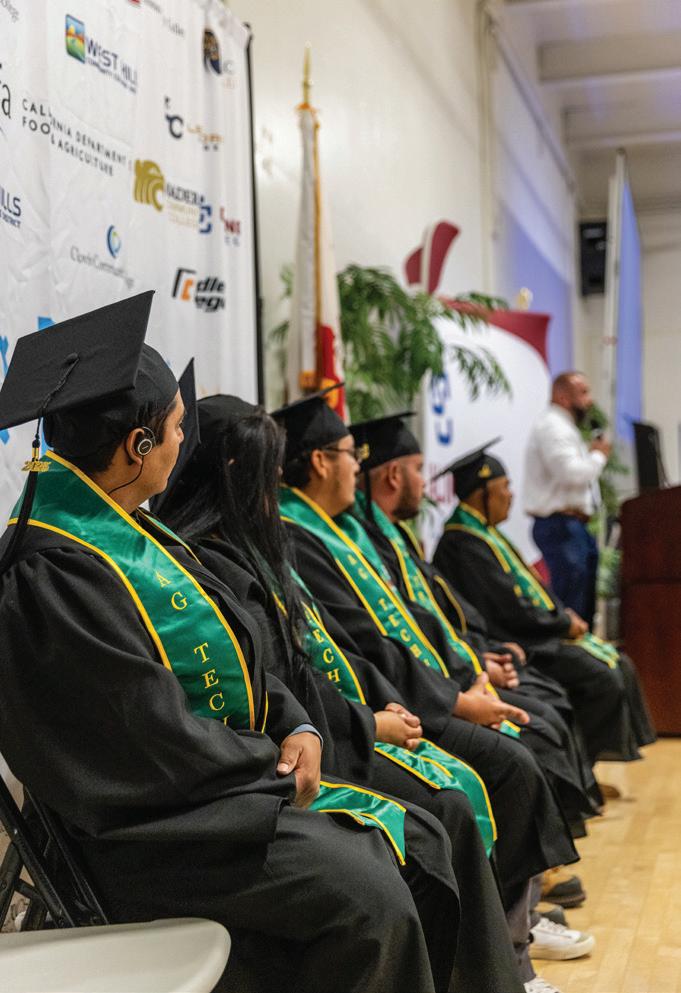
CERTIFICATE PROGRAM OPENS OPPORTUNITY FOR AG WORKERS
Imagine a certificate program that tells specialty crop employers a student has been trained in 14 different core skills — from digital literacy to machine operation and food safety — that make them ready to succeed in a career in agriculture. That’s the vision behind the AgSystems Certificate Program, a collaborative effort between the Specialty Crop Workforce Development Program and F3’s AgTEC Workforce initiative, now offered at seven colleges across California’s Central Valley.
Designed for both new learners and experienced workers, the program allows students to progress at their own pace, testing out of material they’ve already mastered so they can focus on areas where they need additional support. This flexible approach meets learners where they are, helping them make the most of their time in the classroom, while balancing jobs and daily schedules.
Since its launch in August 2024, the certificate program — available in both Spanish and English — has enrolled more than 350 students, many of whom are the first in their families to attend college.
The program was developed in direct partnership with specialty crop ag employers who took part in surveys and roundtable discussions to help shape the curriculum. Graduates return to work more confident and capable, with a strong understanding of their role in the broader ag system.
COMMUNITY COLLEGES ARE RESPONDING TO INDUSTRY NEEDS
Community colleges play a crucial role in filling skills gaps, and San Joaquin Delta College and Modesto Junior College are stepping up to the occasion, in partnership with the Specialty Crop Workforce Development Program.
Following a series of curriculum development workshops and engagement opportunities with local ag producers, San Joaquin Delta College has launched several new initiatives to align with industry needs.

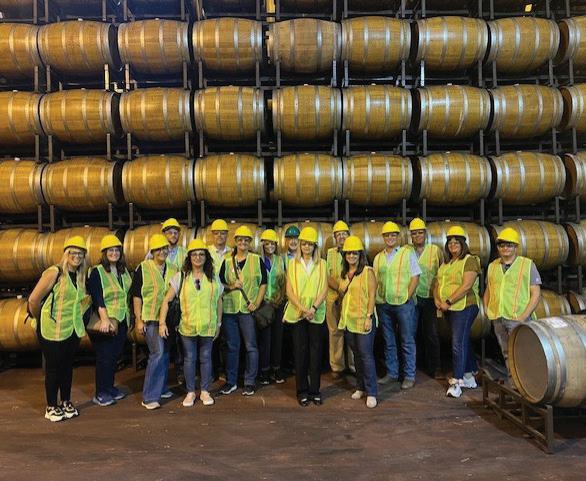
The college’s new Agriculture Technology curriculum teaches students skills such as robotics and automation, and fundamentals of electricity and industrial hydraulics. Its updated Ag Business program exposes students to commonly used tools like the Microsoft Suite, Salesforce and HubSpot. In addition, the college is preparing to launch new courses in Agricultural Leadership, Viticulture and Enology, and Regenerative Agriculture. These changes are being supported by a new Dean of Agriculture, Business and Technology and the hiring of three full-time agriculture professors.
Modesto Junior College is making similar strides by exploring ways to embed water system management into its agriculture curriculum, opening new career pathways for students interested in technical or non-traditional agriculture roles. This reflects a broader trend toward preparing students for roles beyond the field and into departments like sustainability, HR and operations.
PROGRAM GAUGES WORKFORCE NEEDS, CREATES TRAININGS AND BUILDS INTERNSHIPS
The Specialty Crop Workforce Development Program works with agriculture employers to understand their workforce needs, facilitate trainings to meet those needs, and create opportunities for high-quality internships, apprenticeships and jobs.
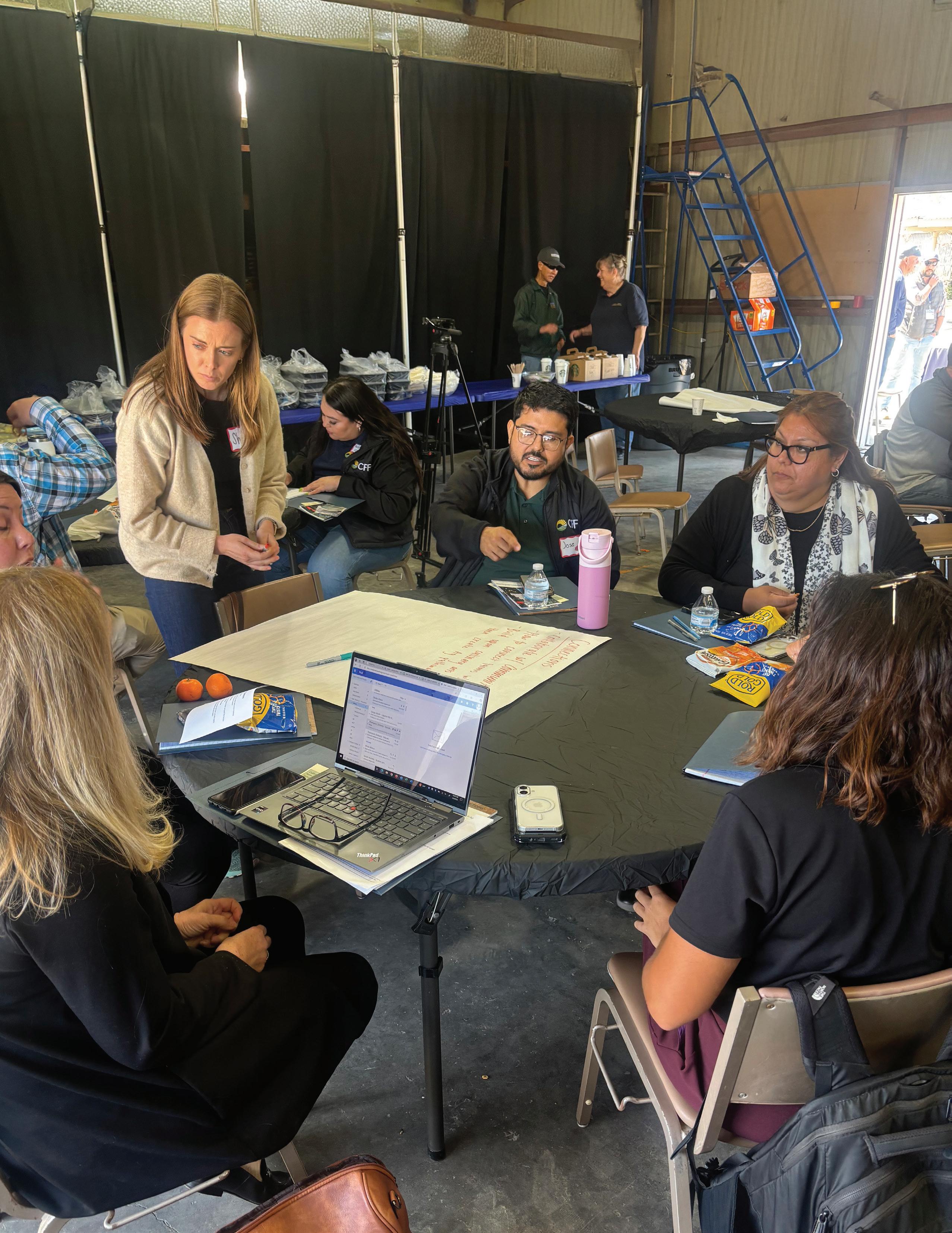
Industry input does not live in a vacuum. In fact, it is used to shape education, trainings and curriculum that meets the needs of industry, and provides opportunity for individuals to grow their careers. It’s All Connected
INDUSTRY FORUMS ELEVATE THE VOICE OF SPECIALTY CROP GROWERS
In collaboration with education and industry leaders, the program hosted regional stakeholder forums in Bakersfield and Los Angeles, convening growers, educators and workforce professionals to strengthen connections and inform workforce strategies. These forums served as collaborative platforms to explore curriculum gaps and evolving employer needs. Through open dialogue and shared examples of innovative programming, participants examined how education and workforce systems can better align to support modern agricultural careers and shape a more agile and connected workforce pipeline. Two additional forums are planned for Santa Barbara and Monterey.
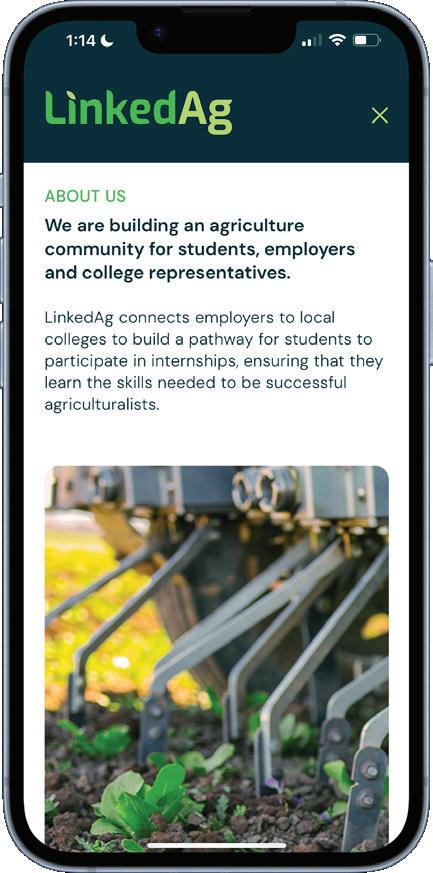
INTERNSHIP PROGRAMS OFFER HANDS-ON TRAINING AND HELP FILL THE WORKFORCE PIPELINE
While classroom education is an important tool in workforce preparedness, nothing beats hands on learning, and internships are a great way to give students real-world experience that helps prepare them for the future.
While specialty crop producers and agriculture companies are in need of labor, they often don’t have the infrastructure and connections to build and recruit for internship programs. With the assistance of the Specialty Crop Workforce Development Program, growers are able to form connections with local student interns and apprentices, and receive stipends to support internships. In doing so, ag employers gain opportunities to grow their workforce pipeline, while providing students with the opportunity to learn and build relationships with businesses in their community.
AGTECHX ED EVENTS CONNECT SPECIALTY CROP EMPLOYERS TO EDUCATORS AND STUDENTS
The Specialty Crop Workforce Development Program, in partnership with the Western Growers Center for Innovation & Technology, hosted a series of events designed to understand workforce needs. Dubbed AgTechX Ed, the events occurred at 22 community colleges across California and not only engaged ag employers, but also connected them to local colleges, educators and students.
At each event, employers shared the skills they’re seeking — from precision agriculture application and irrigation management to equipment operation, communication and teamwork — and offered insights into their evolving labor needs.
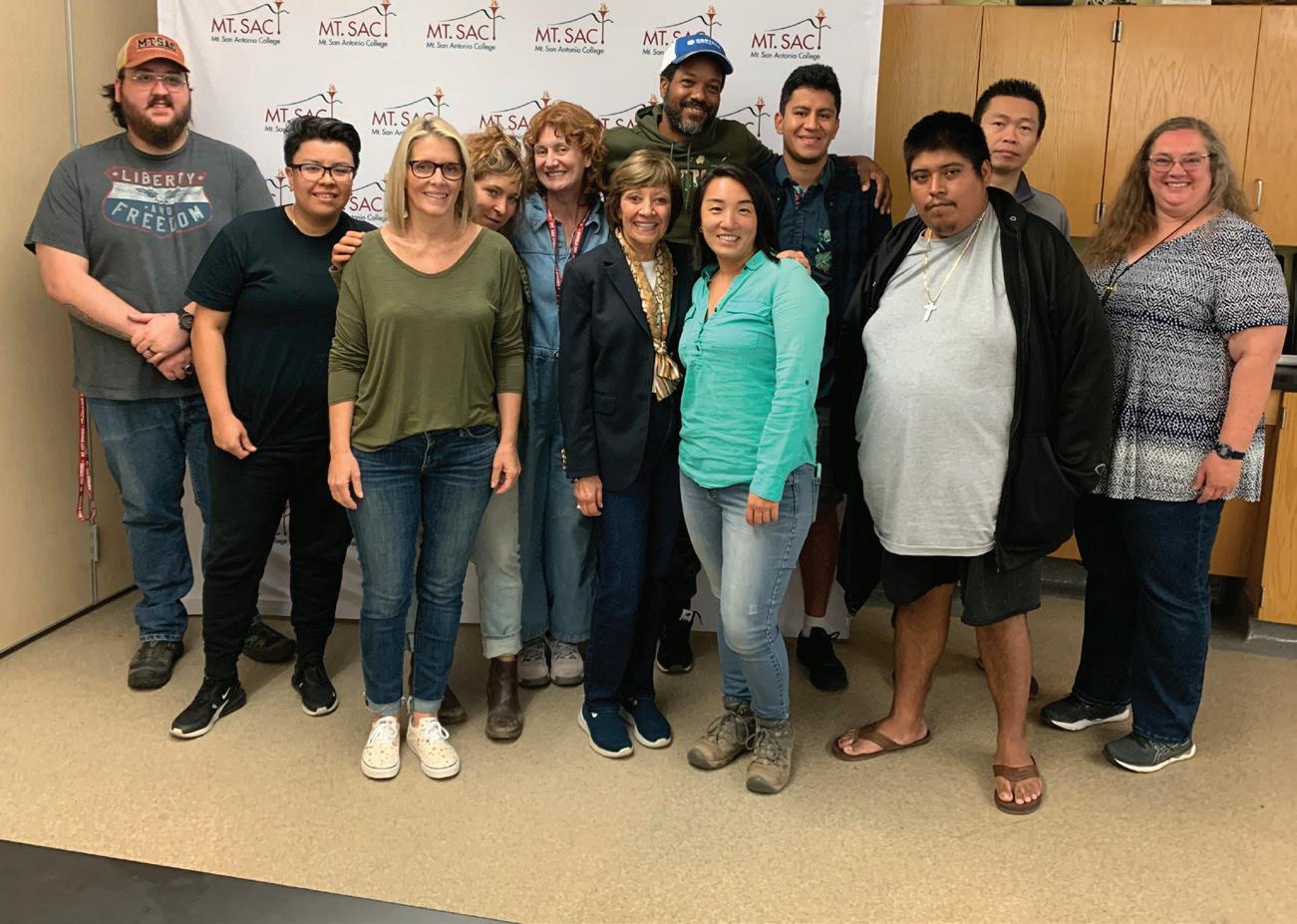
College faculty had the opportunity to talk directly to employers and showcase how they are adjusting curriculum to address employer needs. Students were invited to present the learnings from their agriculture programs, form connections with local ag employers and learn more about rewarding careers in agriculture. Each event also included a fireside chat with California Department of Food and Agriculture Secretary Karen Ross. Through AgTechX Ed events, the program has built meaningful connections with ag employers and, most importantly, helped inform local training programs to ensure those who go through them are workforce-ready and prepared to make an immediate impact.
The LinkedAg app streamlines the hiring process by connecting agricultural employers with local colleges, creating a pathway for students to gain internship experience and develop the skills needed to be successful agriculturalists.
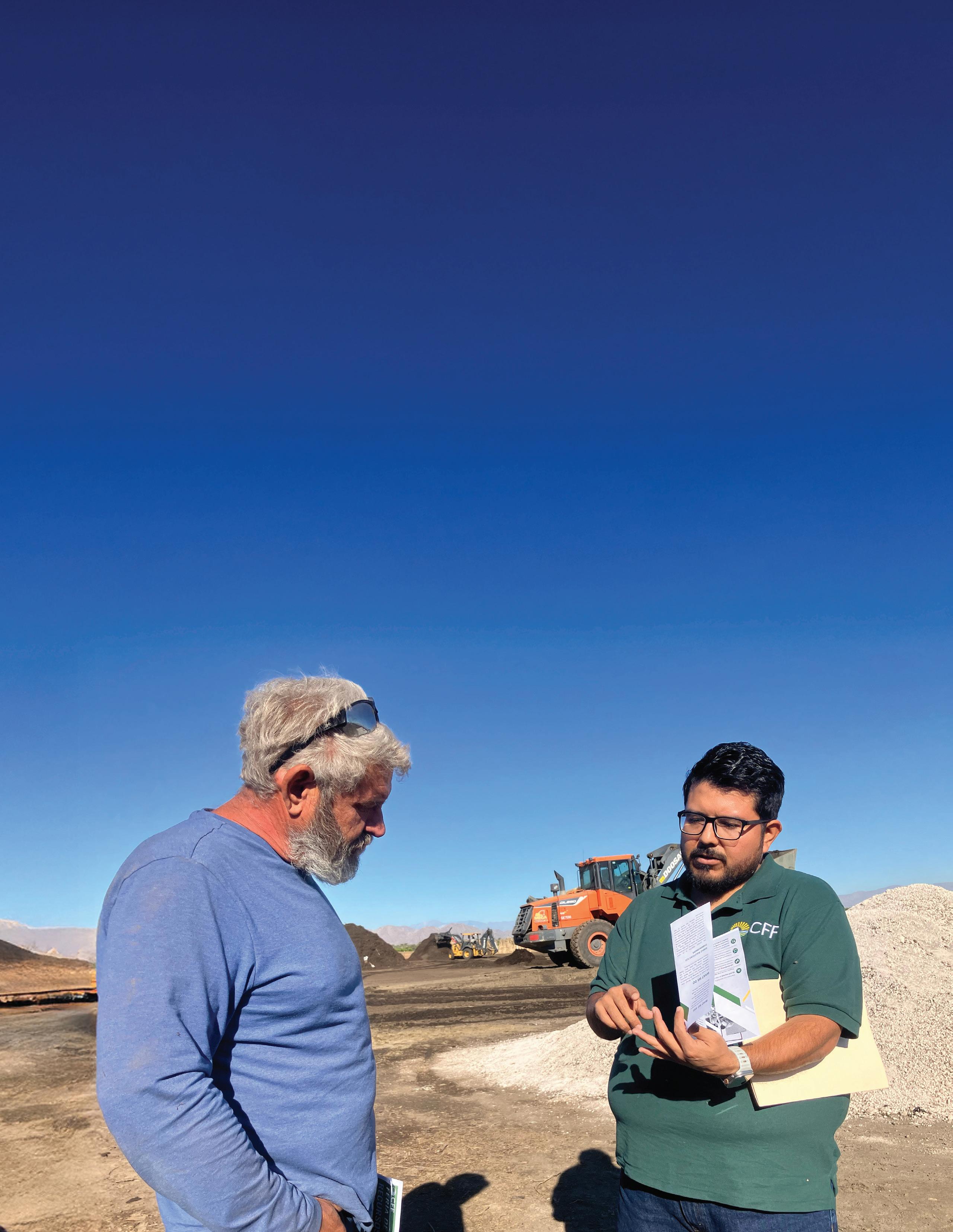
Understanding Farmworker Needs: PROGRAM MEETS FARMWORKERS WHERE THEY ARE
FROM SURVEYS TO SOLUTIONS: FARMWORKERS PROVIDE INPUT, GAIN UPSKILLING OPPORTUNITIES
Building a more equipped agricultural workforce requires more than understanding employer needs — it also depends on listening to farmworkers. The Specialty Crop Workforce Development Program, in partnership with the California Farmworker Foundation (CFF), has surveyed over 18,000 farmworkers to better understand their experiences, educational interests, and the types of support services they need. These insights have shaped the creation of accessible, short-term certificate programs designed to meet farmworkers where they are — with trainings offered directly at job sites and in nearby community spaces.
To date, more than 100 farmworkers have participated in these certificate programs, gaining hands-on training in areas such as forklift and aerial boom operation, along with opportunities to pursue higher paying, more technical jobs. One farmworker, previously employed as a general laborer, earned his forklift certification through the program and now holds a higher paying, more technical position. Others have used their aerial lift licenses to transition into more stable roles in date harvesting. These accessible certifications serve as launchpads, opening doors to long-term career growth.
Surveys also identified a need for stronger clerical and applied math skills. In response, the program launched an Agricultural Math course focused on real-world applications — from measuring liquids and converting units to using phone calculators and understanding interest rates — helping workers gain practical tools to grow both professionally and personally.
BREAKFAST FOR IMPERIAL VALLEY FARMWORKERS HELPS UNDERSTAND BARRIERS TO TRAINING
Meeting people where they are takes on a whole new meaning when trying to reach individuals with non-traditional work hours and limited availability outside of work. That’s why the Specialty Crop Workforce Development Program, in collaboration with the California Farmworker Foundation (CFF), supported a Farmworker Appreciation Breakfast in Imperial Valley held between midnight and 4 a.m. This timing allowed workers to attend before beginning their early morning shifts.
Program staff engaged with nearly 2,500 individuals, listening to their experiences and learning more about their needs, interests and barriers they face in learning new skills and accessing support services.
A key takeaway was the need for more accessible educational opportunities, particularly in terms of location. Many farmworkers shared that even the closest community college campuses are difficult to reach, often requiring reliable transportation that is not always available. This feedback underscores the importance of bringing training and resources directly into farmworker communities and doing so in ways that consider their time constraints and lived experience.
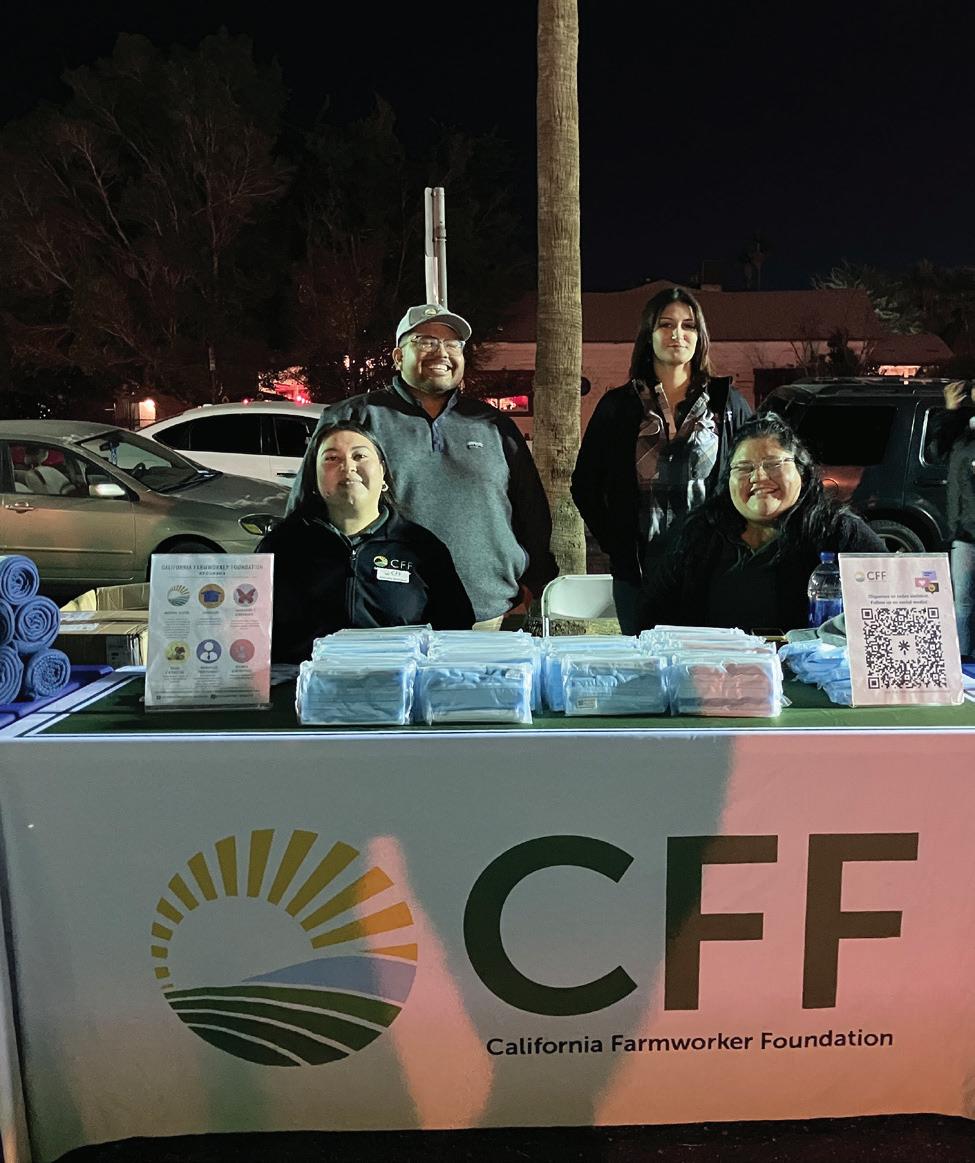
CELL-ED BRINGS LEARNING TO FARMWORKERS’ FINGERTIPS
For farmworkers looking to expand their skill set and further their careers, learning can be as simple as using a cell phone. Cell-Ed is an on-demand digital platform that offers short, self-paced lessons farmworkers can access directly from their phones.
Supported by the Specialty Crop Workforce Development Program and the California Farmworker Foundation (CFF), this learning platform helps overcome common educational barriers farmworkers face, such as discomfort with traditional classroom settings. It features audio-based lessons and occupational vocabulary that is tailored specifically to agriculture.
Modules cover practical topics such as identifying crop diseases like mildew and blight, enabling farmworkers to communicate field issues more effectively with their supervisors, and ultimately support farmworker advancement.
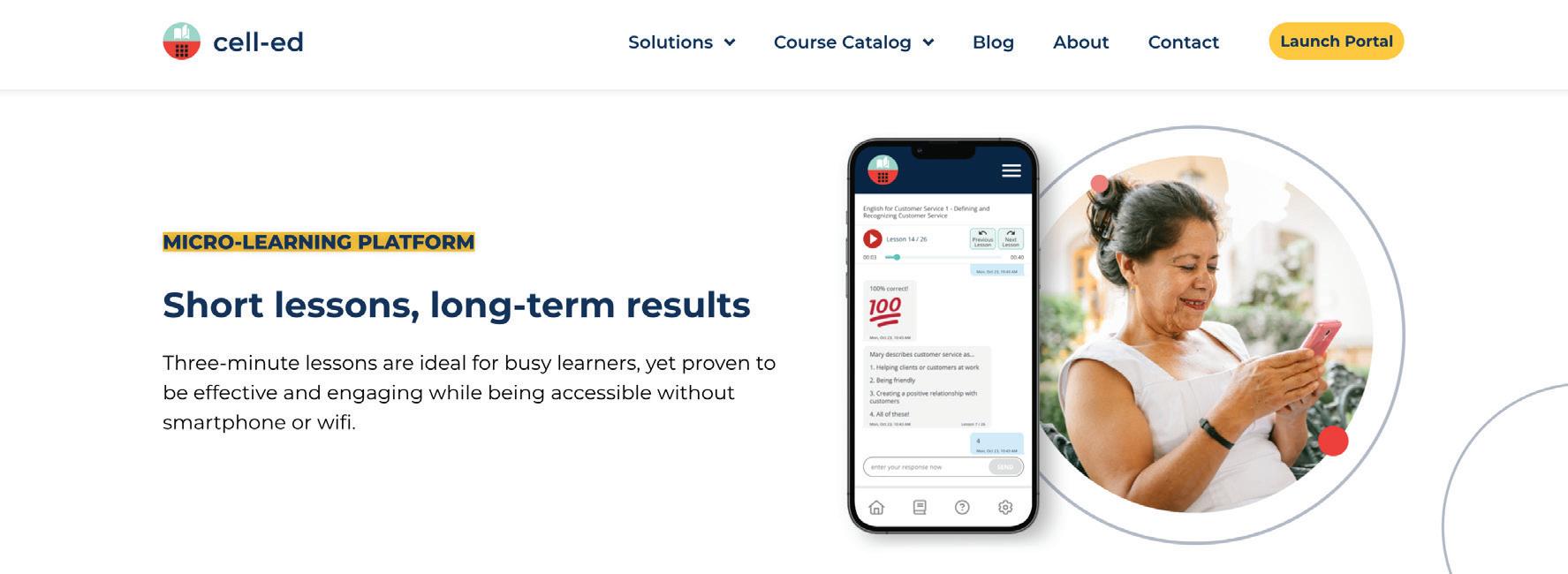
Elevating Small Farms and Farmers: SUPPORTING SMALL AND RURAL FARMERS WITH TOOLS, EDUCATION AND RESOURCES
The Specialty Crop Workforce Development Program connects small and rural farmers with added trainings and resources — food hubs, technology, food incubators and more — to grow their businesses and bring new products to market.

STRENGTHENING RURAL FARMS WITH ADDED TALENT
Specialty crop growers in Northern California encounter unique challenges that are shaped by the rural and remote nature of their communities. Supporting small growers through internships not only addresses local labor needs but also creates a meaningful impact in these tightly knit agricultural communities. With support from the Specialty Crop Workforce Development Program, 15 interns have been placed with specialty crop growers across small and rural farms in Northern California. Among them:

Malena is a Shasta College student and mother of three who, through support from the program, obtained an internship at Trinity Nursery in Trinity County. Her role includes checking shipments, assisting customers, making plant recommendations and supporting on-site plant care.
Malena Gibbens at Trinity Nursery
FROM FIELD TO MARKET: EMPOWERING SMALL GROWERS TO DEVELOP VALUE-ADDED PRODUCTS
For many small specialty crop growers in California, producing a quality crop isn’t the only thing necessary for success: the ability to commercialize these products can also be a challenge. Thankfully, the Specialty Crop Workforce Development Program has resources to help. From connection to food hubs and access to technology, and other tools to bring products to market, the program helps small farms and farmers gain the skills and resources needed today and the future.
In one example, the program, in partnership with the National Association of State Departments of Agriculture (NASDA) Foundation, supported the Farm2Food Accelerator, a 15-week program that helps growers develop value-added products, like turning fresh basil into pesto or tomatoes into salsa, through hands-on training in recipe development, food safety, packaging, pricing and marketing. Growers learn from nationally recognized instructors, are given comprehensive workbooks and materials, and join a peer cohort of 12-15 specialty crop producers in California.
To date, more than 35 California specialty crop producers have participated in the accelerator program, joining a broader national community of over 180 growers.
The Farm2Food Program acts as a launchpad, enabling specialty crop growers to access new markets and continue growing their businesses.
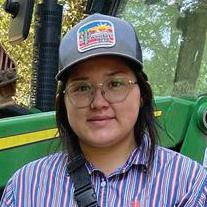
Iris, a student at Feather River College, supports five different small farms near the Hoopa Valley Indian Reservation. Her work includes supporting the reservation’s community garden, helping with a food procurement program that brings fresh produce to elders and assisting growers at the local farmers market.



Lilly, a student at College of the Redwoods, is gaining hands-on experience through her internship at Flood Plains Produce. She’s learning the ins and outs of small farming — priming pumps, working on tractors and setting up the farm’s roadside produce stand.
Denise Ruiz, an alumna of the California’s Farm2Food Accelerator Program, showcases a dehydrated cactus product at a Las Vegas tradeshow.
NASDA Foundation staff lead a Farm2Food workshop at the Growing Together Latino Farmer Conference in California’s Central Valley, highlighting business development opportunities for Spanish-speaking growers and food entrepreneurs.
Iris Hostler at Rise Up Ranch (Hoopa Valley Indian Reservation)
Lilly Sands at Flood Plains Produce
cdfa.ca.gov/Specialty_Crop_Workforce_Development
